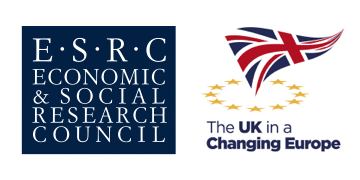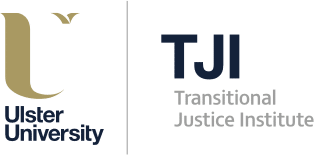Brexit and immigration control in Northern Ireland
By Fidelma O’Hagan
Securing control over the UK’s borders was the dominant theme of the Leave campaign in the run up to the 2016 EU referendum. It was a campaign which operated against an unashamedly anti-immigration narrative and centred on the politics of increased immigration control.
Following on from the result of the EU Referendum, and fast forwarding to the June 2017 UK elections, the Conservative Party Manifesto set out the government’s commitment to a reduction in the net migration figure to the tens of thousands, stating that figures would be reduced in part by the government continuing to “bear down on immigration from outside the European Union. “
As the only part of the UK which in a post-Brexit world will share a land border with the EU, the question as to what such bearing down will look like in Northern Ireland is of particular relevance. In order to understand the government’s plans in relation to this we must first consider some of the different sources of free movement we currently enjoy on these islands.
The Common Travel Area
The Common Travel Area (CTA) covers Ireland, Northern Ireland, Britain, the Isle of Man and the Channel Islands. It was first established in 1922 in order to facilitate the free movement of Irish and British citizens and has been developed via administrative arrangements which are bilateral agreements between Ireland and the UK. The agreements provide for passport free movement for Irish and British citizens on journeys within the UK and between the UK and Ireland with the CTA specifically referred to in UK’s 1971 Immigration Act. So, what impact will Brexit have on these free movement rights within the CTA?
In her March 2017 letter to the European Council triggering Article 50, Theresa May set out a commitment to maintaining the CTA and avoiding a hard border between the two countries. The issue of the border on the island of Ireland has been a main focus for the EU Brexit negotiating team and UK’s Brexit Position Paper on Northern Ireland states clearly that the government is:
….firmly committed to protecting and maintaining the CTA and associated rights…. preserving these arrangements and the unique relationship between the UK and Ireland is a priority in the negotiations ahead…..This means protecting the ability to move freely within the UK and between the UK and Ireland with no practical change from now…… The development of our future immigration system will not impact on the ability to enter the UK from within the CTA free from routine border controls.
The objective of a frictionless, seamless border between Ireland and the UK, with no return to the hard borders of the past, has been repeated by the Prime Minster, the Secretary of State for Northern Ireland, the Department for Exiting the EU and fully endorsed by politicians in Ireland, north and south.
The Belfast Good Friday Agreement
The Belfast Good Friday Agreement (the Agreement) enshrines the right of people born in Northern Ireland to self identify as British or Irish or both. The Strands of the Agreement contain specific North/South (the two jurisdictions on the island of Ireland) and East/West (Ireland and the UK) dimensions which, taken alongside the complex constitutional context of Northern Ireland in light of the CTA, and the mutual recognition of rights in relation to British/Irish citizens, provides conditions whereby the right to free movement should be considered as applying across the CTA.
Looking again at the UK government’s Position Paper we see that it recognises this “unique constitutional framework.” The Paper continues:
It is therefore important that the negotiations achieve our shared objective of upholding the Agreement itself, and also that, crucially, the UK and the EU do not do anything to obstruct the wide range of cooperation between Northern Ireland, Ireland and Great Britain in the future partnership.
It therefore recognises that any restrictions imposed on the movement of Irish and British citizens within the CTA would raise issues regarding compliance with the Agreement.
We welcome commitments that there will be a seamless, frictionless border on the island of Ireland but are aware that assurances of no routine border controls does, on the face of it, contradict the Conservative Party’s election promise to reduce net migration in the UK. It raises the important question therefore as to how immigration control will be carried out in Northern Ireland if there are to be no regular checks between Newry and Dundalk or Derry and Letterkenny. We believe the aim will be to achieve it via a number of different means.
Racial profiling
The UK’s Position Paper informs us that there are no plans to establish routine immigration checks:
The development of our future immigration system will not impact on the ability to enter the UK from within the CTA free from routine border controls.
Whilst there may no plans for Border Force to carry out regular, formal immigration controls as people cross the border into Northern Ireland, there are real concerns that measures will be implemented which could have serious human rights implications for minority ethnic communities here. Amongst those concerns are that ad-hoc checks will be conducted on the basis of racial profiling (the form of racial discrimination whereby persons are singled out on the basis of skin colour or other ethnic indicators), there will be increased use of administrative detention for persons who cannot ‘satisfy’ immigration officers as to their status with the possibility for increased criminalisation of the BME communities. The use of racial profiling has been criticised by the Northern Ireland Human Rights Commission and the House of Lords in relation to Operation Gull, an immigration process which targets domestic UK flights and ferries to and from Northern Ireland in order to identify and arrest undocumented immigrants who may intend to cross the border. The Operation, which arrested 775 people in 2015/2016, has also been criticised by human rights groups for its lack of transparency.
Immigration legislation
Another tool which will be used in Northern Ireland in the absence of routine border controls, as well as a means of deterring those considering coming to the UK, will be the extension of immigration control functions and duties into the private and public sector.
When considering the nature of the CTA as a border-free zone, it is important to note that immigration controls are not, and never have been, solely about the ability to prevent and control entry at the UK’s physical border. Along with many other Member States, controlling access to the labour market and social security have long formed an integral part of the UK’s immigration system.
The Immigration Act 2016 built on the 2014 Immigration Act by extending immigration responsibilities amongst non-state actors. In existing procedures or schemes that are being piloted throughout the UK, landlords, driving licence agencies, banks and building societies, sit alongside employers and hospital staff as emerging immigration officers who must check a person’s immigration status, at risk of penalty or possible criminalisation for failure to properly do so. The extension of immigration control responsibilities into sectors where there may be little or no oversight will result in people being singled out by means of racial profiling in order to determine their eligibility to access essential services with possible denial of those services. We envisage that we will also see an increase in the mistakes that have already been reported in the media.
The way forward
There is growing concern that a post-Brexit Northern Ireland will become the most heavily enforced part of the UK, in terms of immigration control. UK immigration law is an excepted matter and draft legislation is not something which the devolved institutions have legislative control over. Home Office policy is also, on the whole, a matter for the UK Home Office. However, Northern Ireland does have control over health and education for example, and must, as we have seen happen in Scotland, proactively protect the most vulnerable in our society by asserting their rights in relation to those matters over which we do have legislative competency. We must adopt a more human rights focused approach towards those who are subject to immigration control and are impacted by the implementation of that control.
Beyond Northern Ireland, there is also a growing momentum in support of the proposal that immigration law and policy should now become a devolved matter. For example, the August 2017 final report of the Westminster All Party Parliamentary Group on Social Cohesion has as the first of its Four Core Recommendations, a call for the creation of immigration systems which are more responsive to the needs of the community so that the
increased democratic and public accountability which would accompany the devolution of immigration policy powers to the regional level would create powerful incentives for local politicians and business leaders alike to celebrate and promote the benefits of immigration for their areas.
This move would enable the development of bespoke, regionally-led immigration systems which would allow our devolved administration to adopt a more humane approach in this regard. In order to push against a regression of rights in the form of racial discrimination, increased administrative immigration detention and criminalisation of migrant communities, Northern Ireland must now join the debate and support the call for the transfer of responsibility for the development of immigration laws and policies, to enable us to progress towards increasing respect for human rights and equality for all in a post-Brexit world.





